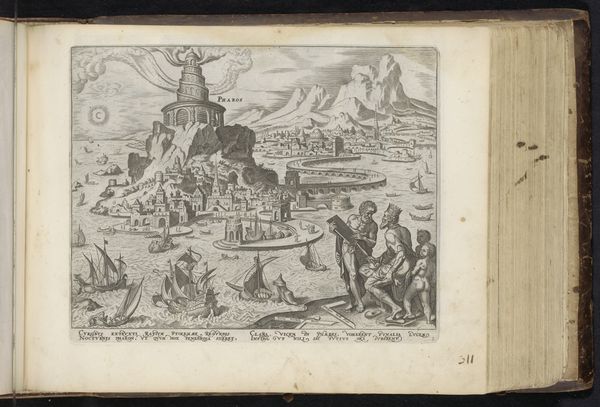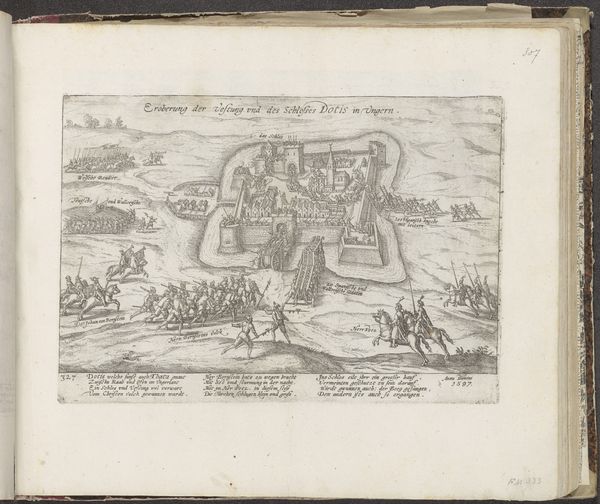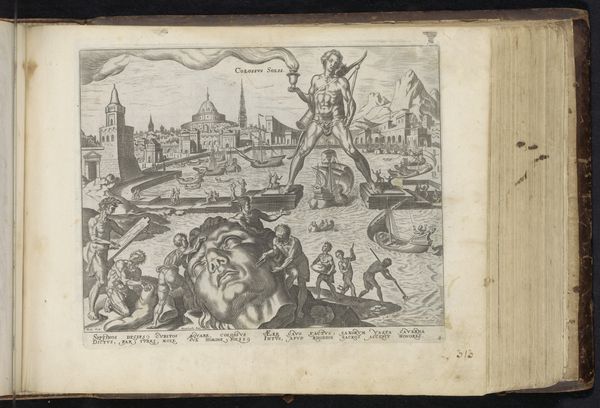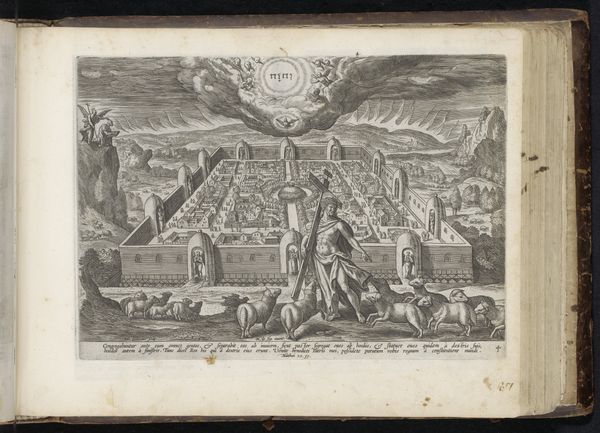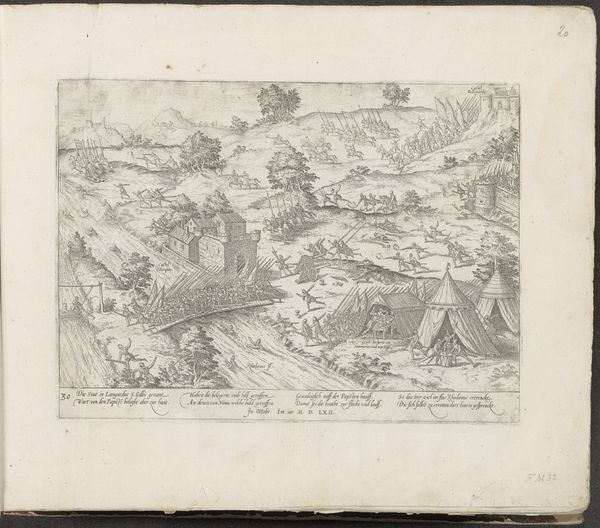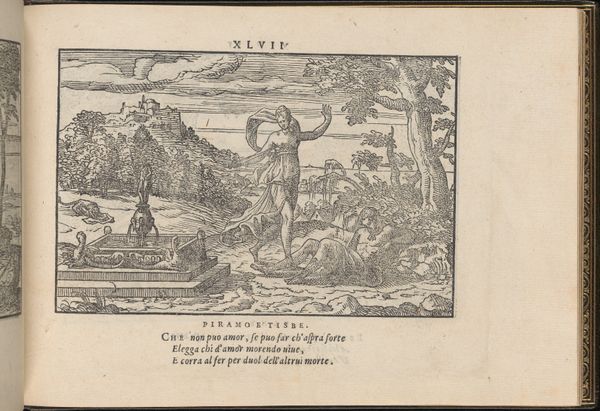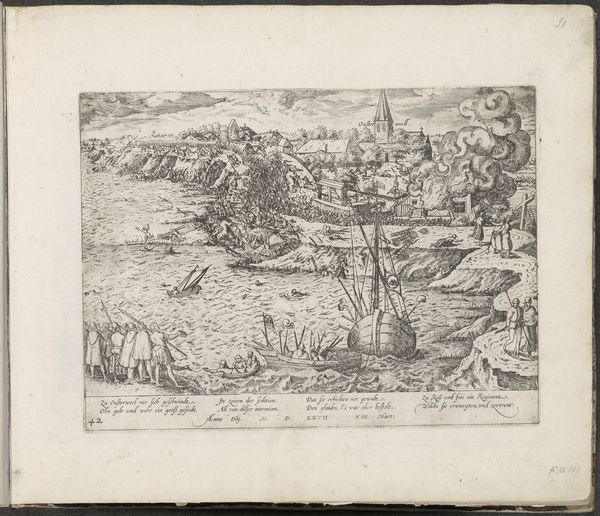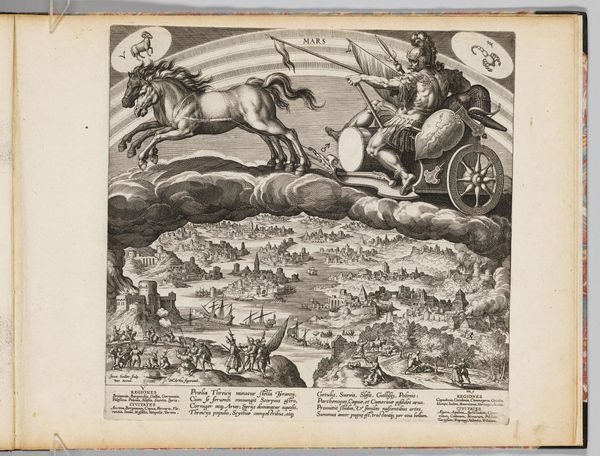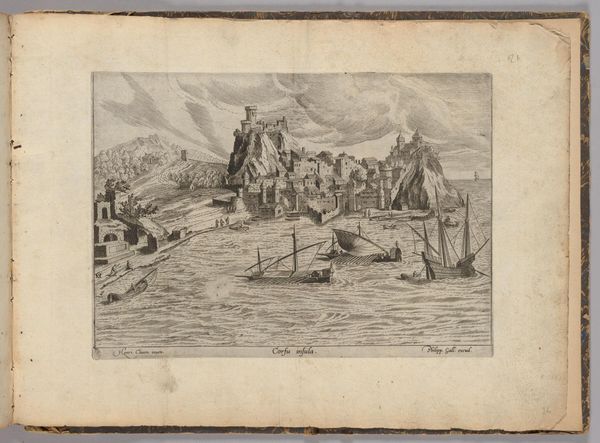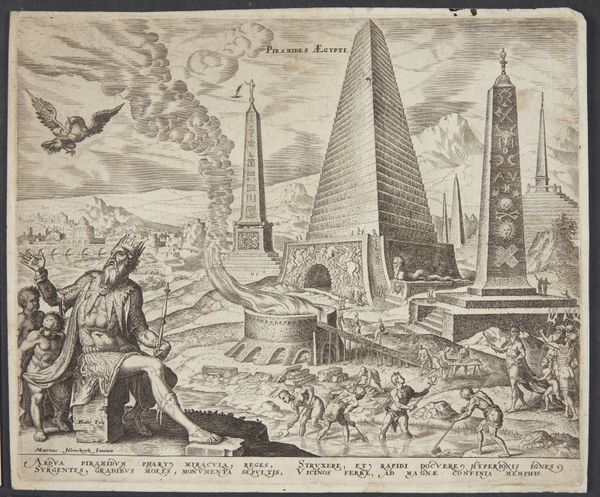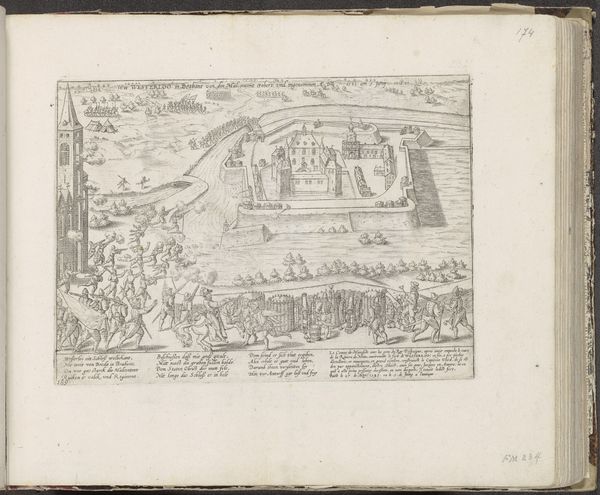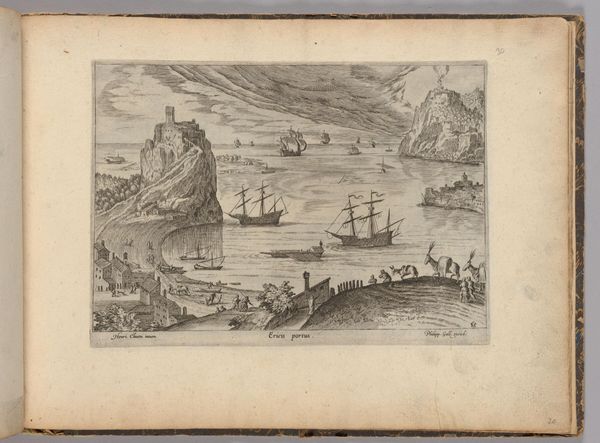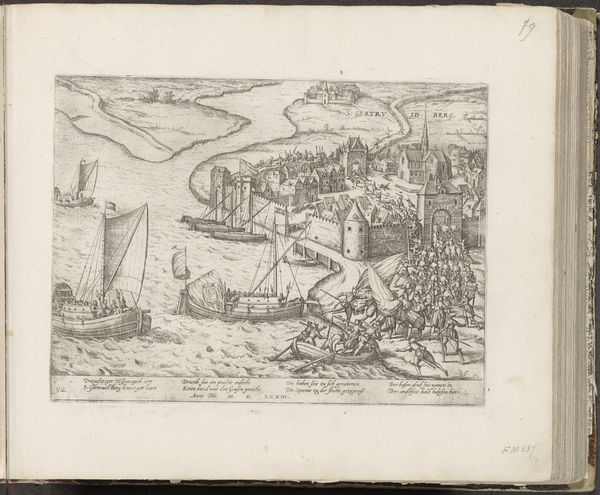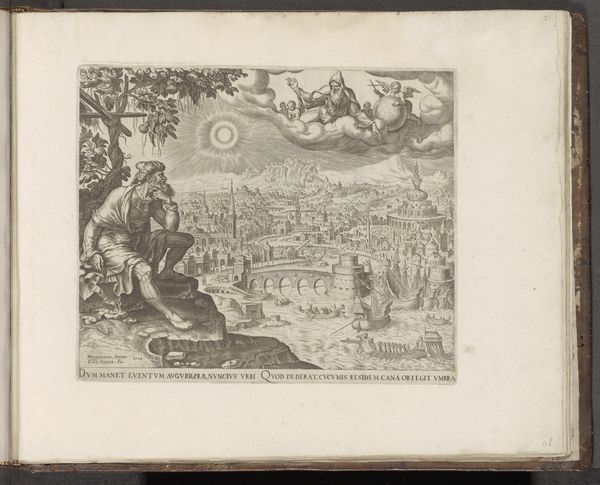
print, engraving, architecture
#
portrait
# print
#
landscape
#
figuration
#
ancient-mediterranean
#
line
#
history-painting
#
engraving
#
architecture
Dimensions: height 211 mm, width 254 mm
Copyright: Rijks Museum: Open Domain
This engraving of the Pyramids of Egypt was made by Philips Galle in the late 16th century using a printing press. Lines are etched onto a metal plate, which is then inked and pressed onto paper to transfer the image. The stark contrast of lines against the white paper gives the pyramids a monumental presence. Galle's technical skill is evident in the complex rendering of the architecture, and the depiction of human figures involved in the pyramids’ construction. Look closely and you'll see the artist's interest in the social context of the pyramids. Galle has included a large number of workers, shown heaving stones, raising obelisks, and stoking fires. Galle probably never witnessed these scenes himself, and is drawing on the Western European tradition of associating monumental architecture with a high human cost. The pyramids are not simply triumphs of engineering. They are monuments to labor and power. By focusing on materials, making, and context, we can challenge traditional distinctions between fine art and craft and gain a fuller appreciation of works like this.
Comments
No comments
Be the first to comment and join the conversation on the ultimate creative platform.
